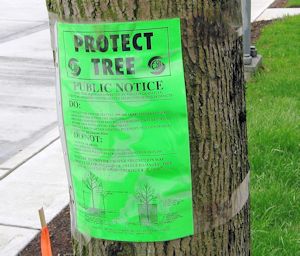RALEIGH — Legislation that would rein in locally enacted environmental regulations is being readied for the coming session of the N.C. General Assembly, a move that could have far-reaching effects on the way cities and counties draft development, stormwater and a host of other ordinances.
Supporter Spotlight
In an update last week for the Environmental Review Commission, legislators heard from lobbyists on both sides of the issue while contemplating another attempt to limit environmental regulations at the local level. The commission is composed entirely of legislators and recommends environmental bills to the full legislature.
Supporter Spotlight
 Rep. Chuck McGrady |
 Rep. Chris Millis |
 Erin Wynia |
The changes are being studied by a group led by Rep. Chuck McGrady, R-Henderson, and Sen. Andrew Brock, R-Davie. McGrady said the effort is meant to strike a balance.
“The thought was just how far should cities and counties be allowed to go in enacting ordinances with a particular emphasis on areas where the state may already have rules in place,” McGrady said.
One aspect to focus on, he said, is what constitutes environmental regulations, citing local ordinances ranging from restrictions on light pollution to limits on leaf blowers.
The effort to put restrictions on local governments, which was championed last year by Sen. Harry Brown, R-Onslow, has plenty of backers in the legislature and dovetails with a rollback of regulations that’s been an ongoing legislative theme.
Legislators last year attempted to adopt a blanket pre-emption that would have prohibited local governments from passing ordinances more stringent than federal or state rules, but the measure did not survive after opponents warned that it was overly broad.
The legislature, instead, ordered a study of the concept and placed a moratorium until Oct. 1 on new local environmental ordinances except those approved unanimously by local boards.
At the meeting last week, committee member Rep. Chris Millis, R-Pender, said he thinks it’s worth revisiting the proposal. Additional layers of local regulations, he said, is not only a property rights issue, but also, in some cases, result in unintended environmental consequences.
He said one example from the coastal area is that some local stormwater retention requirements are so extreme they can have a detrimental effect on wetlands downstream.
“You have a wetland that was being previously hydrated with runoff,” he said, “and now you’re required to contain and retain all that water to the point where it almost takes a hurricane coming through before the wetlands are actually hydrated again.”
Erin Wynia, Legislative & Regulatory Issues manager for the N.C. League of Municipalities, said she thinks the legislature intends to pass something this year to replace the moratorium when it runs out.
Wynia said the two difficult questions legislators will have to deal with when crafting the bill are what constitutes an environmental ordinance and what the idea of more stringent actually means.
Wynia said in areas like stormwater and drinking water sources, where state and federal rules are complicated and overlapping, some local ordinances are aimed at meeting mandated goals. Cities and towns could find themselves subject to large daily fines for violations while unable to adopt ordinances to meet the requirements.
Another example, she said, are tree ordinances, which McGrady cited as another area of concern.
Wynia said some towns have tree protections or planting requirements because of aesthetic reasons. “The towns see these as a way to make their communities more attractive,” she said. “Developers view them as an environmental ordinance.”
 As they debate reining in locally enacted environmental ordinances, legislators must define what they are. Are ordinances protecting trees, for instance, meant to preserve the environment or a town’s aesthetic appeal? |
In cases like that, Wynia said, the state starts to intrude on a local government’s land-use powers. She said many towns on the coast have ordinances in place to make their areas more attractive for tourism. Some of those could fall into the environmental category if the definition is too broadly drawn, she said.
Mary Maclean Asbill, a senior attorney with the Southern Environmental Law Center, agreed that a reprise of the pre-emption legislation is coming. She said it’s important to have a debate about definitions and interlocking local, state and federal regulations and responsibilities.
“It is all about the interpretation,” she said.
But Asbill said she doubts that tweaking the definitions will change the fundamental objections to changing what local governments can regulate.
“The whole concept is flawed,” she said. “It will be a shame if they try to force North Carolina into a one-size-fits-all framework. Communities on the coast don’t need the same type of things as communities in the mountains.”
Local governments should be allowed to make decisions on stormwater controls, buffers and other issues based on their specific geography, she said.
Asbill said the most worrying comment in last week’s discussion came when a business lobbyist suggested that legislators at least modify the existing moratorium to make it retroactive to ordinances already on the books.
“I’m not sure how that would play out on the ground,” Asbill said. “Would towns be forced to repeal ordinances? That would lead to a lot of litigation and confusion.”
And though the push may be under the business-friendly banner, Asbill said, not every business is clamoring for the change. “What some businesses do want is certainty,” she said. “They’re getting the opposite from this General Assembly.”







